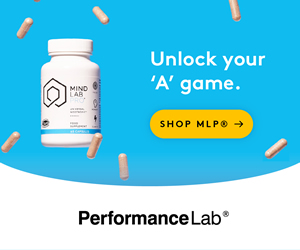Health & Wellness
Exploring Long-Term Astaxanthin Use Benefits and Risks
Learn the benefits and risks of long-term astaxanthin use. Explore its antioxidant power, anti-inflammatory effects, potential side effects, and dosage recommendations.
Can long term astaxanthin use help you?
Astaxanthin, often dubbed the “king of antioxidants,” has gained significant attention for its potential health benefits. But as with any supplement, understanding both its advantages and potential risks, especially with long-term use, is essential before adding it to your daily regimen.
What is Astaxanthin?
Astaxanthin is a naturally occurring carotenoid found in various marine life like algae, shrimp, and salmon. This compound is responsible for the vibrant red-orange color in these organisms. Its potent antioxidant properties have made it a popular dietary supplement.
Natural Sources of Astaxanthin
To better understand where astaxanthin comes from, here are some of its common natural sources:
| Source | Description |
|---|---|
| Microalgae (Haematococcus pluvialis) | The primary and richest source of natural astaxanthin. |
| Salmon | Especially wild-caught salmon is known for its high astaxanthin content. |
| Shrimp & Krill | These marine creatures also contain significant amounts of astaxanthin. |
| Trout | Another fish variety that provides this antioxidant. |
Synthetic vs. Natural Astaxanthin
Not all astaxanthin is created equal. It’s crucial to distinguish between synthetic and natural forms:
- Natural Astaxanthin: Derived from sources like microalgae and offers a broader range of health benefits due to its complex molecular structure.
- Synthetic Astaxanthin: Often used as a food coloring and is less effective as an antioxidant compared to its natural counterpart.
Benefits of Astaxanthin
Astaxanthin is celebrated for its wide array of potential health benefits. Here are some of the most notable ones:
Antioxidant Power
One of the primary reasons people turn to astaxanthin is for its powerful antioxidant properties. It helps neutralize free radicals, reducing oxidative stress and potentially preventing a host of chronic diseases.
Anti-Inflammatory Effects
- Reduced Joint Pain: Studies have shown that astaxanthin can help alleviate symptoms of joint pain and arthritis.
- Healthier Skin: Its anti-inflammatory properties extend to improving skin health, reducing wrinkles, and enhancing moisture levels.
Eye Health
Astaxanthin has been found to support eye health by protecting different parts of the eye from oxidative damage, potentially reducing the risk of cataracts, age-related macular degeneration, and other visual impairments.
Cardiovascular Health
Regular intake of astaxanthin can enhance cardiovascular health by reducing cholesterol levels, lowering blood pressure, and improving blood flow.
Immune System Support
Astaxanthin boosts the immune system by increasing the production of antibodies and enhancing overall immune function, making you better equipped to fight off infections.
Enhanced Athletic Performance
Athletes often use astaxanthin to improve endurance and reduce fatigue. It aids in quicker post-exercise recovery and minimizes muscle damage and soreness.

Potential Risks and Side Effects
While Astaxanthin offers numerous benefits, it’s crucial to consider potential risks and side effects, especially with long-term usage.
Possible Side Effects
- Digestive Issues: Some individuals may experience stomach pain, indigestion, or bowel changes.
- Allergic Reactions: Although rare, it’s possible to have an allergic reaction, resulting in itching, rash, or breathing difficulties.
- Hormonal Effects: Astaxanthin might affect hormone levels, which can be problematic for people with certain conditions.
Interaction with Medications
Astaxanthin can interact with various medications. If you are taking any of the following types of drugs, consult your healthcare provider before starting astaxanthin:
| Medication Type | Possible Interaction |
|---|---|
| Blood Thinners | Can increase the risk of bleeding. |
| Immunosuppressants | May interfere with their efficacy. |
| Blood Pressure Medications | Could potentially lower blood pressure too much. |
| Hormonal Therapies | Might alter hormone levels or effectiveness. |
Lack of Long-Term Studies
One of the primary concerns with long-term astaxanthin use is the lack of extensive studies. While short-term use has been researched extensively, more work is needed to fully understand the implications of taking this supplement over many years.
Who Should Avoid Astaxanthin?
While astaxanthin can be beneficial for many, certain individuals should exercise caution or avoid it altogether.
Pregnant or Breastfeeding Women
There’s limited research on the effects of astaxanthin during pregnancy or breastfeeding, so it’s advisable to avoid it unless recommended by a healthcare provider.
Individuals with Autoimmune Conditions
Since astaxanthin can boost immune function, it might exacerbate autoimmune conditions, making symptoms worse.
People with Allergies to Seafood
As astaxanthin is often derived from marine sources, individuals with seafood allergies should consult their doctor before using it.
Dosage Recommendations
When considering astaxanthin, knowing the proper dosage can help maximize benefits while minimizing risks.
General Guidelines
Most studies have used dosages ranging from 4 to 12 mg per day. However, specific needs can vary based on individual health conditions and objectives.
Factors Affecting Dosage
- Age: Older adults might require different dosages than younger individuals.
- Health Condition: People with specific health issues might need tailored dosages.
- Diet: Those already consuming natural sources of astaxanthin might not need high supplemental doses.
How to Choose a Quality Astaxanthin Supplement
With many options on the market, selecting a high-quality astaxanthin supplement is crucial.
Tips for Selecting
- Source: Opt for natural astaxanthin derived from microalgae.
- Reputation: Choose products from reputable brands with verified third-party testing.
- Ingredients: Avoid supplements with unnecessary fillers or artificial additives.
Conclusion
Astaxanthin offers a range of promising health benefits, from potent antioxidant effects to enhanced skin and eye health. However, potential risks and the need for more research on long-term use should be considered. Personal health conditions, potential side effects, and interactions with medications necessitate a cautious approach. Always consult with a healthcare provider to determine if astaxanthin is suitable for your long-term health strategy.
By staying informed and mindful, you can make the best decisions for your health and well-being.
















